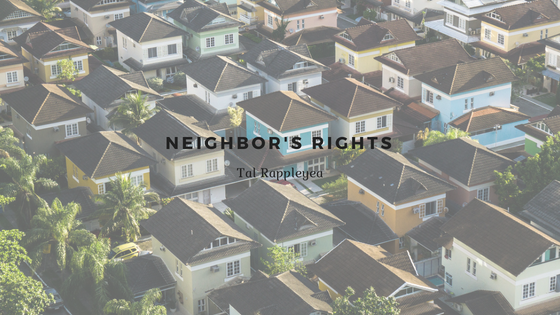There are lots of things to consider when you buy a new property. The views that a property provides are sometimes the deciding factor in a real estate purchase. One important thing to look out for is when a neighbor can block one of those views or legally use their rights to build on their property that might interfere with what you are interested in. So what rights do you, as a neighbor have?
Ask The Homeowners Association
Typically a homeowner will sign an agreement that lays out the rules for what you can and can’t do on your property. When you sign this contract you must abide by these rules set in place. These rules can be specific in regards to building large structures that’ll obscure a view from a neighboring property. If this contract is violated, you are entitled to being able to sue the violating party.
What Is The Homeowner Association?
A Homeowner Association in the United States is generally formed by a real estate developer for the purpose of marketing, managing, and selling homes in a neighborhood they may own. Sometimes a Homeowner Association will grant a developer privileges within it while letting the developer leave the financial and legal side of the development. Generally when you buy a property that lies within a homeowners association, you must sign the contract as a purchasing condition.
View Ordinances
If you are seeking or own a property with a scenic view that’ll raise your property value, a view ordinance can apply. A good example of this is what rights does the neighbors have? Can they build a large structure or allow a tree or other plants to grow? Depending on the contract, you can take action to sue or remove a natural growing plant. Keep in mind the wording of these contracts before taking legal action.
Knowing Your Zoning Laws
Zoning laws exist to help make a community look a certain way. From not having structures exceed a certain height, or things as simple as what and where someone wants to build. Having authority of over the use of land is common in most developed countries. In North America there are different sub-categories of residential zones:
- Residences containing sleeping units: hotels, hostels, motels
- Residences containing sleeping units and more than two social rooms such as: apartment homes, convents, and dorms
- Offices where occupants are present most of the day, or have five or few persons for less than twenty-four hours.
- Residential care/Nursing homes where you will have more than five occupants, but less than sixteen.
Know your rights when you make your next big real estate purchase!
